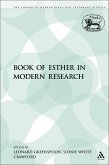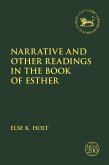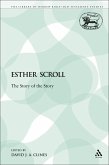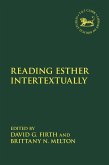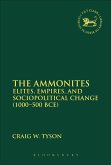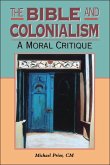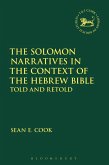The Books of Esther applies form-critical tools to the Septuagint and non-Septuagint ('Lucianic') Greek texts of Esther. Differences in vocabulary, content and style show that the Greek books of Esther are independent traditions stemming from, and aimed at, two distinct religious communities. The 'Lucianic' version appears more personal, orthodox, nationalistic and Jewish; its audience is Palestinian and it intends to foster communal identity. The Septuagint version breathes a more matter-of-fact, reportorial, Hellenistic style, with an eye to tolerance of heretics and audience entertainment. The Masoretic version became canonized because it is the most multivalent of the Esthers, appealing to both religious and secular elements of Judaism.
Bitte wählen Sie Ihr Anliegen aus.
Rechnungen
Retourenschein anfordern
Bestellstatus
Storno



